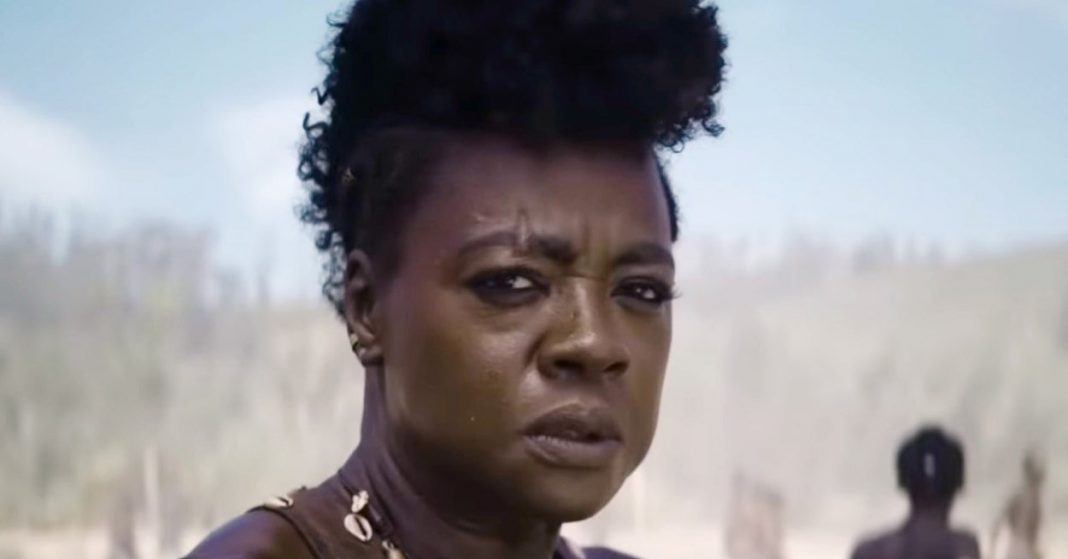Gina Prince-Bythewood’s new movie, The Woman King, is a hit. The Viola Davis–starring historical epic was at the top of the box office this past weekend, and it’s gotten rave reviews too.
There’s also been plenty of conversation around the film’s approach to historical accuracy when it comes to its depiction of the Dahomey Kingdom’s involvement in the slave trade, which some feel was minimized in the movie. Here’s a good article to read if you want to know more.
In a recent interview with Variety, Viola and her husband, Julius Tennon, who was a producer on the film, addressed the criticism and explained why the film partially strays from the real-life story of the Dahomey Kingdom.
In the interview, Viola addressed the commentary by citing Gina’s perspective that “you’re not going to win an argument on Twitter” and confirmed that “most of the story is fictionalized.”
“We entered the story where the kingdom was in flux, at a crossroads,” she said. “They were looking to find some way to keep their civilization and kingdom alive. It wasn’t until the late 1800s that they were decimated.”
“Most of the story is fictionalized. It has to be.”
Julius also referred to the film as “edu-tainment,” saying, “It’s history, but we have to take license. We have to entertain people.”
“If we just told a history lesson, which we very well could have, that would be a documentary. Unfortunately, people wouldn’t be in the theaters doing the same thing we saw this weekend.”
“We didn’t want to shy away from the truth,” he continued. “The history is massive and there are truths on that that are there. If people want to learn more, they can investigate more.”
Viola also spoke about the profound effect that The Woman King is having on audiences.
“People really are being emotionally shifted,” she said. “I saw a TikTok video today of women in a bathroom of an AMC theater, and I don’t think they knew each other. They were all chanting and ruminating.”
“That cannot be quantified by words.”
BuzzFeed also spoke with The Woman King star John Boyega about how the film addresses Dahomey’s involvement in the slave trade. “I think this film has a very nuanced take on that time in history,” he said.
“It’s a movie about self-reflection, it’s a movie about trauma, and it’s a movie about pain. As creators, we are here to shine a light on the realities of the world. We’re not necessarily always here to preach a very accepting message. Art can live in a moral or immoral space and could sometimes just be about shining a light on human nature, history, and the reality of that conflict.”
Read BuzzFeed’s interview with John and Thuso Mbedu here.
